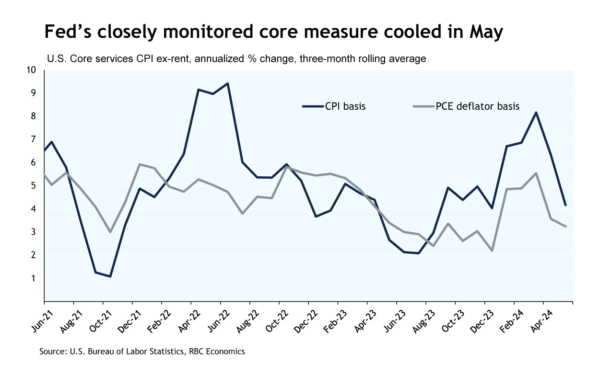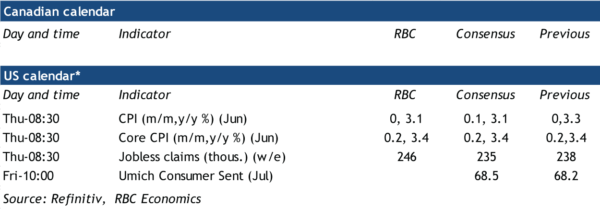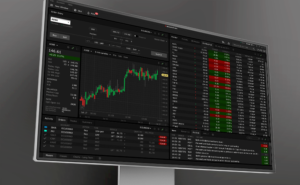June’s consumer price index data for the U.S. will be key in revealing whether the resurgence in inflation is over or if softer readings in April and May were just a short reprieve.
On Thursday, we expect headline CPI growth to slow to 3.1% in June, down from 3.3% in May—marking a third consecutive monthly deceleration. Lower gasoline prices (down 4% from May) are expected to account for the slowing. Food price growth was likely little changed, running around 2% year-over-year and we look for price growth excluding food and energy to hold at 3.4% on a second consecutive 0.2% month-over-month increase.
U.S. Federal Reserve officials will be focused on underlying details after a pick-up in broader measures of price growth in the first three months of 2024 was partially reversed over April and May. Rent prices continue to be the main contributor to U.S. price growth as nearly 60% of headline price growth over the past 12 months was attributed to housing in May. But, that will continue to decelerate as slowing growth in current market rent prices feeds through to lease renewals with a delay.
More concerning was a broadly based acceleration in price growth earlier this year. The share of CPI basket items reporting price growth above 5% (over three months) nearly doubled between November and March. That share moderated over April and May but is still higher than normal. The Fed’s closely watched core services excluding rent measure (super core) posted its softest monthly reading since 2021 in May (-0.04%) but only after a string of upside surprises averaging 0.6% per month over the first four months of the year.
We continue to expect that a sustained slowing in underlying inflation growth will only come alongside a softening U.S. economic growth backdrop, but the economic data also looks more mixed.
Employment rose by 206K in June but the unemployment rate has been edging higher and ticked up by one-tenth to 4.1%. Gross domestic product growth is tracking below 2% for a second consecutive quarter in Q2 and the ISM services index fell to its lowest level since the pandemic in June. Our base case assumption is that the upside inflation surprises earlier this year will delay the start of the Fed’s easing cycle compared to most other advanced economy central banks. We look for the first cut from the Fed in December.

Week ahead data watch:
Canadian building permits will be closely monitored in May given three-month rolling average values have trended higher in recent months, up from 257K to 282K in April.










